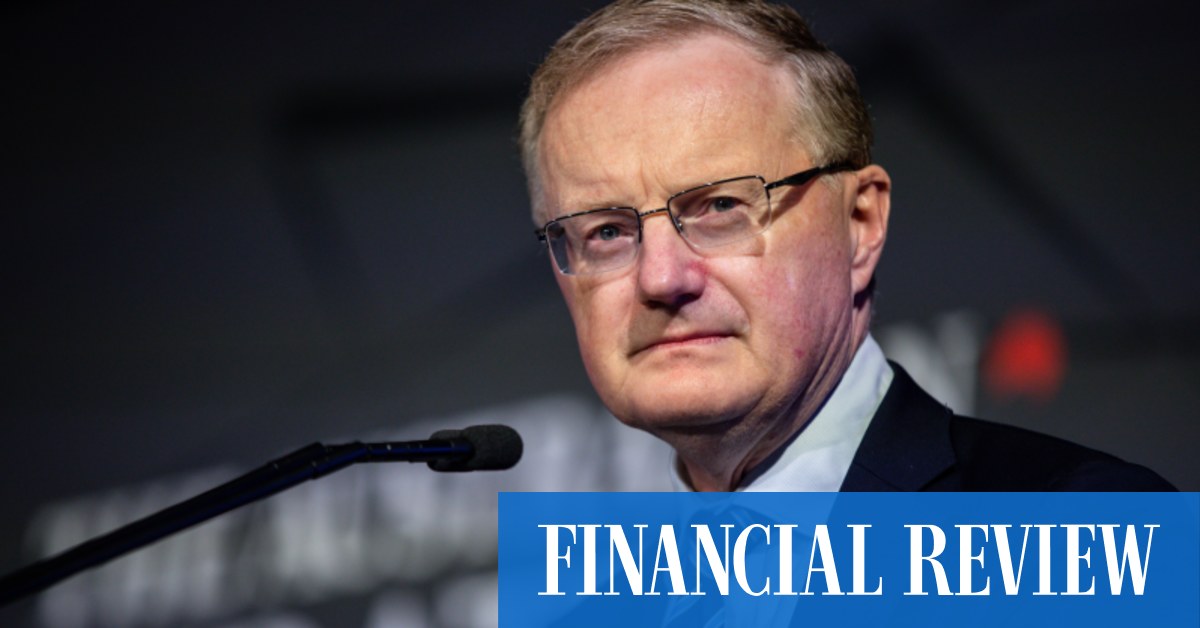“If the governor was to stand down now, it would be a disaster for the country because we have got an extraordinarily challenging period ahead,” he said. “It’s all about making difficult decisions and that requires a significant amount of experience in the job.”
Dr Lowe has spent 42 years at the Reserve Bank, to the top job in 2016. He is well regarded among his global peers and a popular successor to ex-governor, and now Macquarie Group chairman, Glenn Stevens.
“We have one of the best central bank leaders globally,” said George Boubouras, head of research at K2 Asset Management. “Unlike the Clash song, he should stay, and there will be no trouble.”
Treasurer Jim Chalmers has launched a major review of the Reserve Bank’s inflation target, monetary tools, board structure, accountability and culture.
Mr Hogan said the Reserve Bank’s board should be held accountable and step down. The board consists of nine members, six of them appointed by Treasury.
It is also the opinion of Bob Cunneen, chief economist at MLC. He agrees that fresh minds are needed to challenge the Reserve Bank’s beliefs and assumptions.
“The lesson of the last year has been that monetary policy hasn’t been very responsive to the inflation risk and the board hasn’t had the critical thinking skills to question the RBA governor and deputy governor,” he said.
Mr Cunneen believes the most senior board members should step down.
controversy
Forward guidance, deployed as part of yield curve control, was a de facto commitment that interest rates would not be increased for three years after the onset of the pandemic.
The unconventional tool policy involved pegging the three-year government bond rate – then 0.1 per cent – to the overnight cash rate target. It was underscored by formal guidance reinforced by the governor in policy decisions.
Mr Hogan has long held the view that forward guidance was a dangerous instrument because it gave the community a sense of false certainty.
He argues that the board failed the Reserve Bank and Australians by not pushing back on this pledge.
not alone
Other economists and fund managers are more forgiving, arguing that the RBA’s misjudgment was “common” in monetary policy.
“They underestimated the strength of the labor market, wages and inflation,” said Su-Lin Ong, RBC Capital Markets’ chief economist. “But are they alone? Hasn’t everybody revised up their inflation forecast globally?”
The US Federal Reserve and the European Central Bank also long held the view that inflation was temporary before conceding error. Central banks have become warier of making too many predictions about the future.
Dan Siluk, portfolio manager at bond fund manager Kapstream Capital, said that suggesting the whole Reserve Bank board needs an overhaul is too far-fetched.
He appreciates that it was a tumultuous period. “It’s not a job that anyone craves,” he said. “I can’t say the RBA has not done worse than its peers.”
Robert Tipp, chief investment strategist for PGIM in New York, detected a misconception about how central banks have acted. “It’s like the Keynesian line: ‘When the facts change, I change my mind’,” said Mr Tipp.
well ahead
He said the market simply made the mistake of hearing what it wanted to hear.
In reality, he said, the commitment was only to keep rates low until the economic objectives were fulfilled, which happened sooner than expected. The central bank’s focus is the economy, not bond trader happiness, he added.
Even so, following the 180 degree shift in rates, traders have reported lower turnover in volume and liquidity in Australian swap markets in the last six to nine months.
For others, the passage of time will cast the Reserve Bank in a more positive light.
“They seem to be delivering more sustainable outcomes compared to the Bank of England and the Reserve Bank of New Zealand whose economies have amplified challenges,” said Mr Boubouras. “The RBA has served the Australian economy well.”
Mr Hogan is advocating for the return of less transparency in policymaking.
I have argued that before 2007, when the global financial crisis hit, central banks used opaque language on purpose, so they could not be accused of getting things wrong.
Mr Hogan said central banks must project confidence no matter the circumstances. “What we need to see from central banks is less transparency and more accountability,” he concluded.
